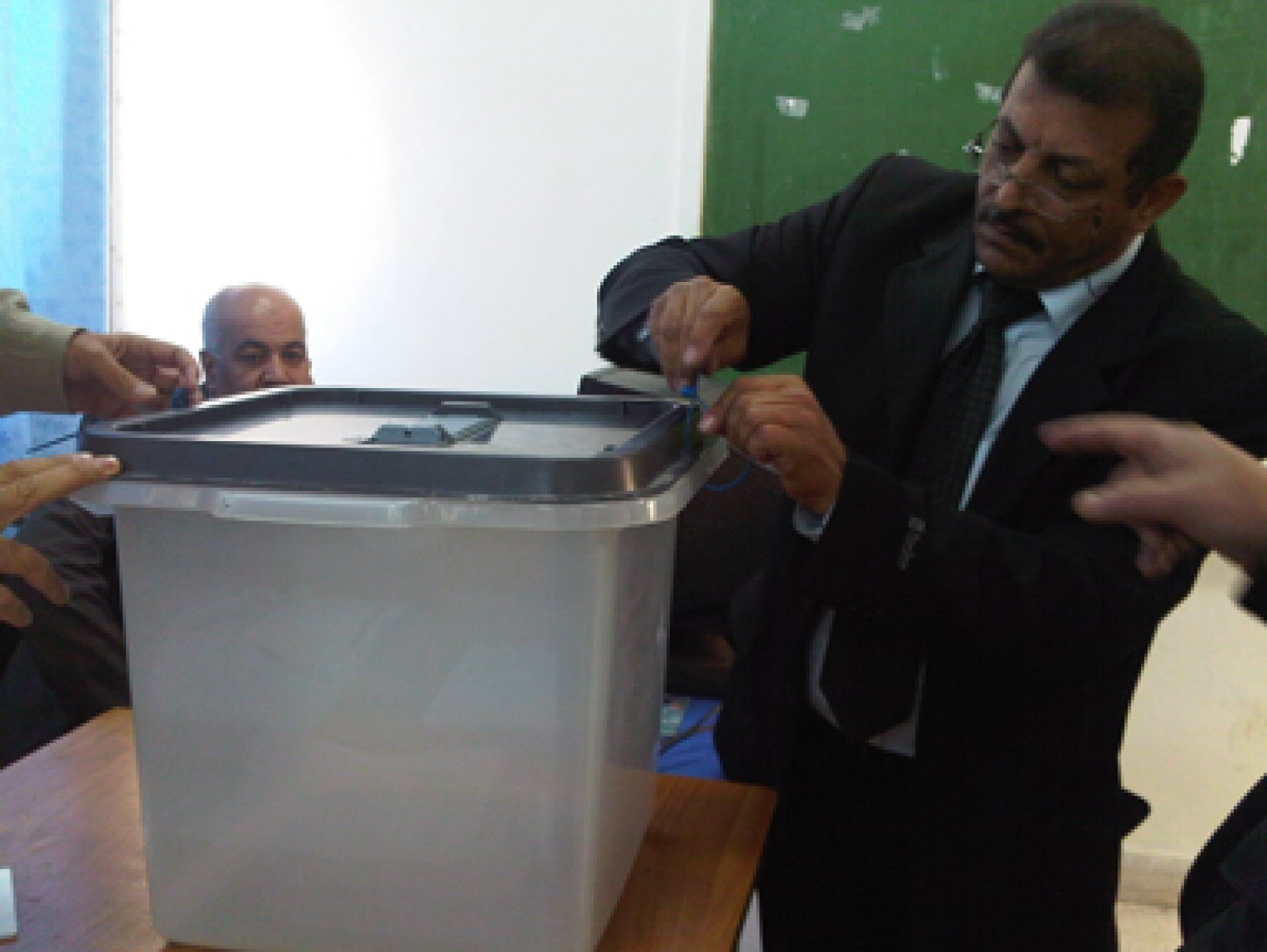
SHARE
The conduct of Jordan's Nov. 9 parliamentary elections showed a clear improvement over the nation's 2007 polls, although a number of structural shortcomings and other problems should be addressed for future elections, according to the findings of an NDI election observation mission.
The delegation, which released a preliminary statement on the elections at a news conference in Amman, Jordan, said that "technical preparations for balloting and the conduct of the voting on election day compared favorably to accepted international practices."
"Although the conduct of the 2010 elections is a significant improvement over 2007, the true test of whether it is a successful exercise will come in the acceptance by the public of the results and the conduct and effectiveness of the parliament that arises from this event," the statement said. "A parliament that provides meaningful representation, robust government oversight and effective laws will increase citizen confidence.
"The increased integrity of the 2010 polls should also encourage more Jordanians to participate in the political system," the statement continued. "Further improvements in election administration...could encourage more confidence in Jordan's political processes, furthering democratic development and enhancing government accountability." The NDI report included a number of recommendations for improving the system.
Among the problems cited by the Institute were numerous allegations of vote buying, frequent reports of voters being turned away because their voter identification cards did not match computerized lists, confusion over Jordan's system of "virtual" sub-districts and concerns over the abnormally high number of illiterate voters, which may have compromised the secrecy of some votes. The delegation also cited the presence of plain clothes security personnel inside polling centers that may have had an influence on voters. And it noted the boycott of the elections by the kingdom's largest organized political party, The Islamic Action Front, "potentially depriving a significant group of voters of an electoral choice."
This year's polls were the first for which the government allowed international observers, which the delegation noted set an important precedent. NDI mobilized 61 observers from 18 countries and territories who visited more than 250 polling centers in all of Jordan's 12 governorates on election day. The group included eight long-term observers who arrived in the country at the beginning of October to monitor election preparations. The goal of the mission was to observe every aspect of the election process, including the campaign, balloting on election day, the counting of the ballots and post-election developments.
Leaders of the delegation were Andrés Pastrana, former president of Colombia; Paul Dewar, member of parliament from Canada; Sam Gejdenson, former member of the U.S. House of Representatives; Margaret Anderson Kelliher, speaker of the Minnesota House of Representatives; and Leslie Campbell, NDI regional director for the Middle East and North Africa.
The statement referred to King Abdullah's call for Jordanian elections "that are a model of integrity, impartiality and transparency," and it said that "Jordan has made significant progress in that direction. Still, significant voter skepticism and apathy remains, in part because elections are organized and conducted by the government itself rather than an arms-length election body."
The delegation also noted that Jordan's new election law, released in May, doubled the number of parliamentary seats set aside for women to 12. While final results have not been released, the statement said, Jordan's new parliament will include the first woman representing a Bedouin district and two women elected from the capital, Amman. At least one woman won a seat outside the quota.
NDI recommended that Jordan:
- Establish an independent election management body to administer elections.
- Continue efforts to achieve better representation through balancing the distribution of voters per seat.
- Revise the election system to promote political party development.
- Introduce in parliament a permanent election law that incorporates different stakeholders' views.
- Regulate campaign finance for more transparency and accountability and address concerns about vote buying. Regulations on electoral violations should also be reviewed to ensure that existing rules are enforced and that penalties are adequate and appropriate.
- If the "virtual" sub-district system is retained, assign voters to specific polling stations. Candidate lists, delineated by sub-district, should be clearly posted at every polling center.
- Reform voting procedures for illiterate voters, including through the use of a printed ballot with candidate photos or symbols.
- Regulate media conduct during the campaign period to ensure equitable air-time and coverage for candidates.
- Introduce regulations to allow for the appeal of election results by candidates in a systematic, neutral and timely manner.
- Encourage parties and candidates to provide better training for candidate representatives.
- Improve procedures for assisting voters with disabilities.
- Adopt measures that allow voters whose names do not appear on the voter list to cast a provisional vote under alternate procedures with proper identification.
Click here to read the full statement»
NDI has sponsored democratic development programs in Jordan since 1993 and has maintained an office in the country since 2004. The Institute's election observation mission in Jordan is funded through a grant from the U.S. Agency for International Development.
Related:
- Statement of the pre-Election assessment delegation regarding Jordan’s parliamentary elections»
- In Jordan, coalition unites for electoral reform»
- In Jordan, Al-Hayat addresses youth apathy in political process»
Pictured above: The head of a polling station in Central Badia seals the ballot box in preparation for the start of voting.
Published November 10, 2010


